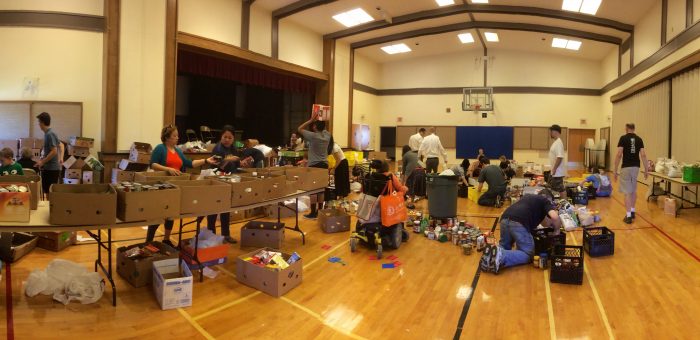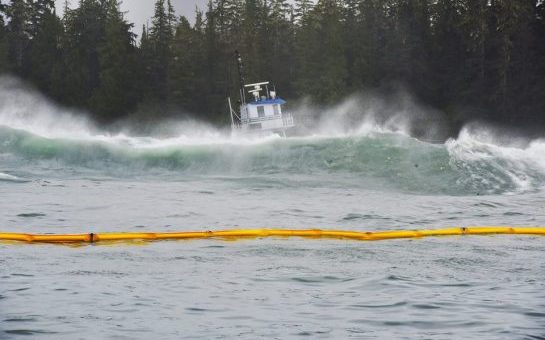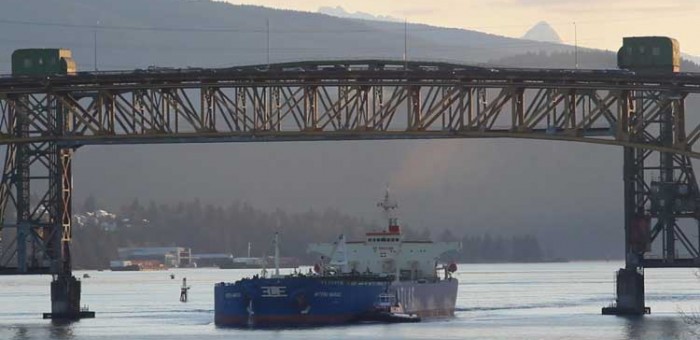Statement on the need for BC poverty reduction strategy
Media Release: November 16th, 2016
Weaver statement on the need for BC poverty reduction strategy
For Immediate Release
Victoria, B.C. – The combination of a low minimum wage, high cost of living, inadequate social assistance, and lack of well-paying jobs has resulted in widespread poverty across British Columbia – the only province without a poverty reduction strategy.
Peter Fassbender, Minister of Community, Sport and Cultural Development, recently said he didn’t see the need for a poverty reduction strategy.
“It is outrageous. Comments like these show how out of touch the B.C. Liberals are with the issues facing everyday British Columbians,” said Andrew Weaver, Leader of the B.C. Green Party. “They are more interested in building an economy that supports their corporate donors than they are in building one that supports the British Columbians that they were elected to represent.”
“The B.C. Liberals have spent 16 years claiming they need to grow the economy before they can deal with poverty. Our economy has grown, and yet British Columbia continues to have one of the highest poverty rates in Canada. Their trickle-down approach to poverty reduction is not working and they have no plan to fix it,” said Weaver, the MLA for Oak Bay-Gordon Head.
The BC Liberals’ jobs plan does not come close to addressing poverty in BC. 55,000 jobs have been created since last October, but 75% of these jobs (41,000) are part-time positions.
“The creation of part-time precarious work does not amount to a poverty reduction strategy and it does nothing to help struggling families in B.C.”
Food bank use is at an all-time high in BC: 103,400 people used food banks in March 2016, according to Food Banks Canada’s annual HungerCount report. Children made up almost a third of that number. This makes 2016 the 3rd year in a row that food bank use has increased. Charities are left with the responsibility to fill the gaps left by government inaction: people are relying on charities to meet their essential needs for food, clothing, and shelter.
“I personally know of a growing number of students who use food banks because they can’t afford to live,” said Weaver.
The unprecedented rate of food bank use in BC today speaks to the utter failure of the BC Liberals to promote economic growth in a way that serves British Columbians, and not just corporations. BC has one of the highest levels of poverty in the country, with between 11-16% of adults and 16-20% of children living in poverty, depending on the measure used.
-30-
Media Contact
Mat Wright – Press Secretary, Andrew Weaver MLA
1 250 216 3382
mat.wright@leg.bc.ca
Statement on Canada’s Electric Vehicle Policy Report Card
Media Release: November 15th, 2016
Weaver Statement on Canada’s Electric Vehicle Policy Report Card
For Immediate Release
Victoria, B.C. – “The B.C. Liberals continue to struggle with embracing the technology of the 21st Century,” said Andrew Weaver, MLA for Oak Bay – Gordon Head and Leader of the B.C. Green Party, in response to the near failing C- grade that B.C. has received on Canada’s Electric Vehicle Policy Report Card. The report was released today by Simon Fraser University’s Sustainable Transportation Action Research Team.
“Jurisdictions around the world are actively embracing the future of transportation and B.C. is getting left behind. We have a wonderful opportunity to get on board as a leader in this sector. I hope that we seize this opportunity instead of resisting our passage into the modern age. The BC Liberal’s uninspired approach to embracing the future is typical of a government that has dragged their feet on ridehailing and significant investment in the tech industry, while championing a return to a fossil-fuel based 20th century economy.”
“Our economy is falling further and further behind the rest of the world. B.C. needs to introduce legislation that mirrors California’s Zero Emission Vehicle Standard Program and start to lead in transportation sectors such as this.”
A Zero Emission Vehicle (ZEV) Standard Program has also been adopted by Quebec and nine US States in addition to California (Connecticut, Maine, Maryland, Massachusetts, New Jersey, New York, Oregon, Rhode Island and Vermont).
Under the ZEV Program, automakers are required to earn a set percentage of zero emission vehicle credits, through selling electric vehicles or buying credits from other automakers who have a surplus. In Quebec, automakers must maintain ZEV credits equal to 3.4% of all sales of 2018 models, rising to 15.5% in 2025. In California, credit requirements are 4.5% in 2018 and 22% in 2025.
“With the Lower Mainland and Southern Vancouver Island geographically constrained, they represent ideal locations for the widespread adoption of zero emission electric vehicles.
“Whether we are leaders or laggards, this is where the world is heading. We ought to capitalize on that.
-30-
Media Contact
Mat Wright – Press Secretary, Andrew Weaver MLA
1 250 216 3382
mat.wright@leg.bc.ca
Background:
SFU’s Sustainable Transportation Action Research Team (START) today released the first ever comprehensive assessment of electric vehicle (EV) policy progress across the country. Canada’s Electric Vehicle Policy Report Card aims to provide provincial leaders with an assessment of whether current and planned EV policies will cut transportation-related greenhouse gas emissions at the scope, scale, and speed needed to prevent dangerous climate change. B.C. scores an underwhelming C-.
Electric Vehicle Use Internationally:
The Indian government has introduced an aggressive incentive program with the goal of having every car on its roads electric by 2030, they aim to be a 100 percent electric vehicle nation. Dutch politicians have voted through a motion calling on the country to ban sales of new petrol and diesel cars starting in 2025, to make their roads gradually electrify over the next decade. In June, Norway’s major parties reached an agreement to ban the sale of new gasoline and diesel powered cars starting in 2025. In October, German legislators of both parties voted to ban the internal combustion engine by 2030.
Responding to the National Oceans Protection Plan
Media Release: November 7th, 2016
Andrew Weaver Responds to the National Oceans Protection Plan
For Immediate Release
Victoria, B.C. – “Though weak on details, I am supportive of the initiatives outlined in the National Oceans Protection Plan includes,” says Andrew Weaver, Leader of the BC Green Party and MLA for Oak Bay-Gordon Head.
“I am especially grateful to see derelict vessels included in this plan. As an MLA for a coastal area, it is an ongoing problem I have struggled with in my riding. Currently, local, provincial and federal governments get mired in jurisdictional squabbles as the remediation process for derelict vessels is delayed, leaving boats to rust and leak on the foreshore.
“The Heiltsuk Nation has worked tirelessly to monitor and mitigate the impact of the recent diesel spill near Bella Bella. They stepped up to fill in where the provincial and federal governments were lacking and I’m glad to see the importance of co-management with Indigenous communities acknowledged in this plan.
“That said, I am worried this announcement will be held up as a justification for the approval future heavy oil projects. Even with a full protection plan the effects of a diluted bitumen spill in our waters would be catastrophic.
“If Trans Mountain were approved, which this announcement leaves room for, the number of tankers leaving Vancouver Harbour and traveling through the south coast of B.C. would increase by 580%. Currently, five tankers per month enter the port at the Westridge Marine Terminal. With Trans Mountain that would increase to an estimate 34 tankers per month. At 408 tankers transiting into and out of the Vancouver Harbour per year, over the project’s estimated 50 year lifespan that would be 40,800 tanker trips past the Gulf Islands and Southern Vancouver Island through the Juan de Fuca Strait – a route the Federal Tanker Safety Expert Panel has deemed “very high risk.”
“In both my professional and political capacity, and my role as a Trans Mountain intervener, I can state with certainty that the project must be rejected if we are to move in the right direction. The time for halfway measures – both to protect our marine environment and to reach our pledge to cap global warming well below 2.0°C – is at an end.”
“If world leaders understood what they signed in Paris, they would know that meeting the 2.0°C target is incompatible with the investment in any new fossil fuel infrastructure that is planned to be used in the next several decades.”
-30-
Media Contact
Mat Wright – Press Secretary
Andrew Weaver MLA
1 250 216 3382
mat.wright@leg.bc.ca
Troubling response by Minister of Transportation to question on DriveABLE
In an earlier post I explored the process that seniors must go through when a driver turns 80. As I noted, they are required to see their doctor for a Driver’s Medical Examination Report (DMER) every two years. If a doctor raises concerns related to cognitive issues that could interfere with driving abilities, the patient may be instructed to take the DriveABLE examination.
I cannot understand the purpose of the BC Government making seniors jump through the costly DriveABLE hoop when they can ultimately appeal a DriveABLE test failure and ask for an on-road evaluation. It makes no sense to me. It strikes me as for more sensible to just dump the DriveABLE screening and go straight to the on road test. The monies saved in this process could be used to eliminate the DMER cost to seniors.
Yesterday on the Voice of BC, I posed this question directly to Todd Stone, Minister of Transportation:
Question (A.Weaver): A number of seniors in my riding have contacted me over the DriveABLE program and the concerns they have and the stress that they go through when they have to take it. As you know, DriveABLE is a program that only some seniors have to take if directed to by their doctors. If one fails the DriveABLE test, you can still request a road test. It seems to me like this is an unnecessary process that actually wastes a lot of taxpayers’ money — $400 per test, in fact. Do you think we can actually eliminate the DriveABLE requirement in BC? And if not, why not?
Answer (T. Stone): Well look, I know that when the DriveABLE program was brought in it was not a decision taken lightly by government. There was a tremendous amount of concern and opposition expressed at that time. And it certainly is a question that gets posed to me from time to time. Fundamentally we have an obligation to make sure that all motorists are safe motorists. And if a doctor believes – Vaughn, the day will come for you and the day will come for me – that perhaps it’s time to go and be tested to ensure that you’ve got the response time and your eyesight is still good and so forth, I think that’s a good check and balance from a safety perspective, not just for that senior, but for all motorists. That’s a tough one. It’s often the last vestige of independence for people. Somebody losing their licence, that’s a difficult, difficult time for them. But we have to make sure that when you’re out there driving, you’re able to do so safely.
His answer is troubling as it implies that he doesn’t actually know what the DriveABLE test is, or when it is applied. His answer suggests that he is confusing DriveABLE with DMER.
The DMER is taken by all seniors over 80; DriveABLE is only used to examine cognitive skills for a select few. Eye testing is done under DMER not DriveABLE. And the computer based DriveABLE is confusing, stressful and difficult for some seniors who have not grown up in the video game generation.
I would have expected better from the Minister or Transportation. The issue of driver safety is already covered by DMER and the existing option for an on-road evaluation. Based on his response, it is clear to me that costly taxpayer funded DriveABLE program needs to be dumped. I will continue to pressure government to do so.
Responding to Ministerial Panel Report on Trans Mountain Pipeline
Media Release: November 3rd, 2016
Andrew Weaver responds to Ministerial Panel Report on Trans Mountain Pipeline
For Immediate Release
Victoria, B.C. – Andrew Weaver, Leader of the BC Green Party and MLA for Oak Bay-Gordon Head has issued the following statement in response to the publication of the Report from the Ministerial Panel for the Trans Mountain Expansion Project:
“I want to commend this panel for identifying and discussing a number of the gaps that existed in the NEB hearing process into the Trans Mountain Pipeline. As an intervenor in the process, my office was continually struck by the narrow and limited perspective that was used in assessing a project that has significant national and intergenerational ramifications.”
“I have heard from thousands of students during my time as a professor at the University of Victoria, and there is a real sentiment of disillusionment and hopelessness that threatens to take hold if governments don’t start acting in the interests of the next generation of Canadians.”
“I hope that this report and the questions it asks regarding Canada’s climate change commitments, its responsibilities to first nations, and the lack of a comprehensive energy strategy are taken seriously and afforded the appropriate weight as the Federal cabinet deliberates on the fate of the Trans Mountain Pipeline.”
“In both my professional and political capacity I can state with certainty that the Trans Mountain pipeline must be rejected if we are to move in the right direction on these important questions. The time for halfway measures is at an end.”
“The Ministerial Panel Report was released the same day as the United Nations Environment Programme released its Emissions Gap Report 2016 noting that the world is on track to break 3.0°C warming this century, well above the “well below 2.0°C” value pledged at COP21 in Paris.”
“If world leaders understood what they signed in Paris, they would know that meeting the 2.0°C target is incompatible with the investment in any new fossil fuel infrastructure that is planned to be used in the next several decades.”
Media Contact
Mat Wright – Press Secretary Andrew Weaver MLA
1 250 216 3382
mat.wright@leg.bc.ca
Background Information :







